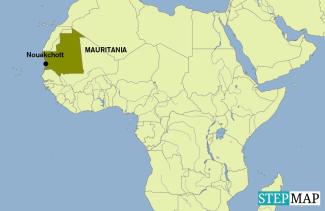Transparency
Fighting corruption in Africa

While 43 % of Africans are living in poverty, corruption costs the continent $ 50 billion a year. According to Transparency International (TI), corruption “hinders development.” In the public sector, several professional categories have been identified as particularly corrupt, TI points out. They include:
- the police,
- elected officials,
- directors of agencies,
- tax officials and
- officials of the judiciary, including judges and magistrates.
Religious leaders can be corrupt too.
“Winning the fight against corruption” was a top item on the agenda of the 31st Summit of AU Heads of State and Government in Nouakchott, the capital of Mauritania, in July 2018. Apart from statements, however, no firm commitment was made by the 24 presidents attending the summit.
A few days before the summit, Daniel Batidam, a Ghanaian member of the AU’s Anti-Corruption Advisory Council, resigned. He pointed out the bad governance, abuse of power and lack of transparency within the Council’s secretariat as well as several departments of the African Commission. “I denounce the mismanagement of the affairs of the African Union and within the secretariat of the Advisory Council against corruption,” Batidam lamented in an interview aired by RFI.
Some problems are obvious. At the summit, the African Commission decided to suspend the budget of the Pan-African Parliament because of poor governance. “It is not possible to build a prosperous Africa when corruption is widespread within the very same organisation that is supposed to set a good example,” was the comment of Jean Baptiste Elias of Benin National Organisations against Corruption, a non-governmental umbrella agency.
The situation is not equally awful everywhere in Africa however. According to TI, five of this world region’s countries are less corrupt than EU members Italy and Greece: Botswana, Seychelles, Cape Verde, Rwanda and Namibia. They show that the fight against corruption can be won.
In many developing countries, however, the situation remains dismal. José Ugaz of Transparency International says: “In too many countries, people are deprived of their most basic needs and go to bed hungry every night because of corruption, while the powerful and corrupt enjoy a lavish lifestyle with impunity.”
According to TI, Mauritania was the 4th most corrupt country in the Maghreb region in 2017, ahead of Libya, but far behind Tunisia, Morocco and Algeria. The TI index is based on how corruption is perceived in expert assessments and opinion surveys.
Ibrahim Orèd’Ola Falola is a journalist from Togo. He currently lives in Nouakchott, Mauritania.
ibfall2007@yahoo.co.uk










